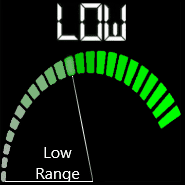Retro Reviews

Welcome to the Retro Reviews page. Here you will find links to The ‘Tude Dude’s Retro Reviews, the “Retro Review Guide” which details how these reviews are structured and the “Retro Review Key” which gives a visual-aid to the different scores/ratings that are used within these posts.
(Click on any link below in the “Quick Links” section or on any in the “Retro Review Links” section to jump to that post)
![]() Scroll below and enjoy
Scroll below and enjoy![]()
Quick Links
 The ‘Tude Dude reviews with power as he dives into the vast library supplied by the 8-bit behemoth The ‘Tude Dude reviews with power as he dives into the vast library supplied by the 8-bit behemoth |
 The ‘Tude Dude DOES what Nintendon’t as he analyzes a bevy of titles from Sega’s blast processing powerhouse The ‘Tude Dude DOES what Nintendon’t as he analyzes a bevy of titles from Sega’s blast processing powerhouse |
 The ‘Tude Dude fiercely critiques with super power as he observes all manner of games from Nintendo’s mode-7 monster The ‘Tude Dude fiercely critiques with super power as he observes all manner of games from Nintendo’s mode-7 monster |
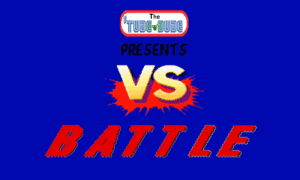 Vs. Battle Reviews
Vs. Battle Reviews
The ‘Tude Dude pits cross-platform counterparts against each other to determine which version is better.
Retro Reviews Guide
As a life-long connoisseur of all things gaming, The ‘Tude Dude has consumed A LOT of reviews over the years some more comprehensible than others. To him, critiquing anything should be somewhat simple as viewers en masse don’t typically have the patience to quantify exactly how good a particular numerical “score” is considering all of the fluid variables involved. I mean think about it… would you request your friend to grade a book you were interested in with a metric between 1-100 or would you just ask them if they liked it or not? Of course you could dive further and get specific about what exact components helped bring them to their decision but ultimately knowing their bottom line in this way creates a solid jumping off point to aiding you in formulating your very own opinion. Therefore, it’s with simplicity in mind more than anything else how The ‘Tude Dude structures his reviews as he acts like your best bud giving you both “superficial” scores and in-depth critical analysis as to exactly how he arrived at his finality.
With that said, The ‘Tude Dude plans on using a simple 1 out of 5 system in his game reviews which should cut down on the complexity a bit overall and keep everything easy to understand in terms of how things are “scored” (refer to the “Retro Review Key” at the bottom of this page for more details). This criteria will be applied to individual aspects in the review judging them each by themselves on a 1-5 scale (1/5 = “Hate it” 2/5 = “Dislike it” 3/5 = “Meh” 4/5 = “Like it” 5/5 = “Love it”). Additionally, the title being reviewed will be put to a “coolness” test as it’s analyzed by the ‘Tude Meter 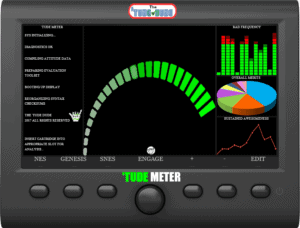 , a beyond radical device created by The ‘Tude Dude to properly scrutinize a video game’s overall edginess on a scale of either low or high output (Low output = “Coolness not guaranteed” High output = “Coolness guaranteed”) which will be explained in even greater detail below. Finally, an overall judgement of the game will be applied going back to the 1-5 scale however a star rating will be applied for lasting effect (
, a beyond radical device created by The ‘Tude Dude to properly scrutinize a video game’s overall edginess on a scale of either low or high output (Low output = “Coolness not guaranteed” High output = “Coolness guaranteed”) which will be explained in even greater detail below. Finally, an overall judgement of the game will be applied going back to the 1-5 scale however a star rating will be applied for lasting effect (![]() = “Terrible game”
= “Terrible game” ![]() = “Bad game”
= “Bad game” ![]() = “Average game”
= “Average game” ![]() = “Good game”
= “Good game” ![]() = “Great game”) to grade its ending tally after all aspects have been considered. So without further ado, here are the main components of a game that The ‘Tude Dude will focus on-
= “Great game”) to grade its ending tally after all aspects have been considered. So without further ado, here are the main components of a game that The ‘Tude Dude will focus on-
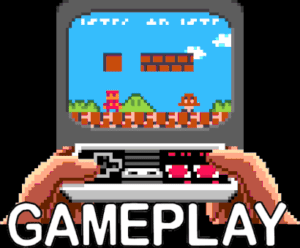 : Does the game feel satisfying in its execution or is there something about it that doesn’t feel quite right? Does it flow well or does it jump around from place to place? Is the story even worth mentioning? Graded on a 1-5 scale.
: Does the game feel satisfying in its execution or is there something about it that doesn’t feel quite right? Does it flow well or does it jump around from place to place? Is the story even worth mentioning? Graded on a 1-5 scale.
 : Can you stop on that tiny little edge with precision or are the controls “walk on ice” slippery? Do you feel in perfect command of your character at all times or does the game act like it’s handicapping you with an unfair disadvantage? Graded on a 1-5 scale.
: Can you stop on that tiny little edge with precision or are the controls “walk on ice” slippery? Do you feel in perfect command of your character at all times or does the game act like it’s handicapping you with an unfair disadvantage? Graded on a 1-5 scale.
 : Does the game have music in it that you find yourself humming to days later or is it laughably bad? Do the sound effects add realism and nuance or noise pollution to your ears? Graded on a 1-5 scale.
: Does the game have music in it that you find yourself humming to days later or is it laughably bad? Do the sound effects add realism and nuance or noise pollution to your ears? Graded on a 1-5 scale.
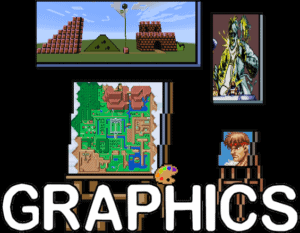 : Is the game a sight to behold or does it leave a bad taste in your eyes? Is it exceptionally smooth when it’s moving or is it choppy like the ocean during a storm? Is the game devoid of any visual-type bugs or should we call the exterminator immediately? Graded on a 1-5 scale.
: Is the game a sight to behold or does it leave a bad taste in your eyes? Is it exceptionally smooth when it’s moving or is it choppy like the ocean during a storm? Is the game devoid of any visual-type bugs or should we call the exterminator immediately? Graded on a 1-5 scale.
 : “Analysis complete for Bad Dudes on the NES
: “Analysis complete for Bad Dudes on the NES 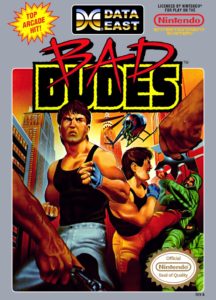 … MAXIMUM ‘tude rating achieved!” *ahem* This aspect I feel I need to explain in even greater detail. What is ‘tude anyways? I like to think of ‘tude as the part of a game that might make it especially cool and eccentric regardless of its other merits providing a unique superficial focus on perspective and concept similar to judging a book or album by its cover. If you’ve ever had to make a gut decision about which game you should buy or rent and your choice was influenced simply by which one you thought was “cooler”
… MAXIMUM ‘tude rating achieved!” *ahem* This aspect I feel I need to explain in even greater detail. What is ‘tude anyways? I like to think of ‘tude as the part of a game that might make it especially cool and eccentric regardless of its other merits providing a unique superficial focus on perspective and concept similar to judging a book or album by its cover. If you’ve ever had to make a gut decision about which game you should buy or rent and your choice was influenced simply by which one you thought was “cooler” 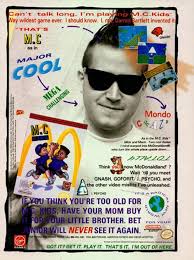 then you’ve inadvertently applied the same kind of shallow-yet-relevant logic that the ‘Tude Meter uses to scan these games and determine its overall ability to stand out from the crowd (though the ‘Tude Meter aggregates at a much more complex level of course)!
then you’ve inadvertently applied the same kind of shallow-yet-relevant logic that the ‘Tude Meter uses to scan these games and determine its overall ability to stand out from the crowd (though the ‘Tude Meter aggregates at a much more complex level of course)!
My earliest memories of experiencing ‘tude in video games happened during the late 80’s to mid 90’s where companies (mainly Sega and Nintendo) would flat out attack each other through various aggressive advertisements sparking a new and more competitive era of edgy and rebellious gaming  . During these lawless times, video game developers weren’t afraid AT ALL to show off more attitude than ever in order to make their properties shine brighter than their contemporaries, casting shade directly at them through “in your face” advertisements which pushed the entire gaming culture up its next evolutionary rung on the ladder
. During these lawless times, video game developers weren’t afraid AT ALL to show off more attitude than ever in order to make their properties shine brighter than their contemporaries, casting shade directly at them through “in your face” advertisements which pushed the entire gaming culture up its next evolutionary rung on the ladder 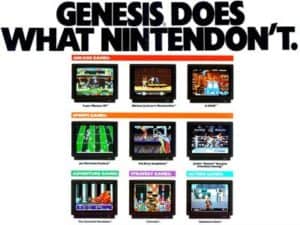 . Now, it wasn’t enough just to up-sell how good your product was but exactly why it was better than the opponents which further pushed creators to stay vigilante with innovative new releases. The ‘tude era was here in full force!
. Now, it wasn’t enough just to up-sell how good your product was but exactly why it was better than the opponents which further pushed creators to stay vigilante with innovative new releases. The ‘tude era was here in full force!
Besides advertisements though, the REAL place to find ‘tude was in the games themselves as it became evident which ones had a little more in this department right off the bat sparking an interest at a young age to scan for this previously “immeasurable” aspect. Whether it’s a kick-ass concept that pushes innovation to exciting new levels like F-Zero 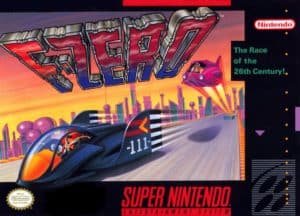 on the SNES, a more adult-oriented game that stands WAY apart from its “kiddie” brethren like Golgo 13
on the SNES, a more adult-oriented game that stands WAY apart from its “kiddie” brethren like Golgo 13  on the NES or perhaps my all-time favorite example of “coolness” in gaming, the Sega Genesis Mortal Kombat
on the NES or perhaps my all-time favorite example of “coolness” in gaming, the Sega Genesis Mortal Kombat 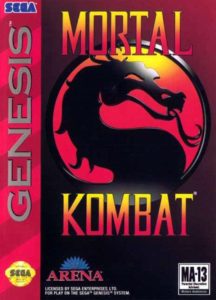 blood code, ‘tude can be found EVERYWHERE across the virtual realm and now thanks to the ‘Tude Meter there’s finally a way to logistically capture it! Is this a more bloody, gory, adult-themed title or does this game lack edge? Are there musical notes and effects that tinge your brain with a specific funk or does the game just sound… gasp… normal? Would this particular release appeal to someone superficially without prior knowledge of it or would it be easy to pass by for the next title? While I understand that this aspect is not exactly the easiest to explain (especially compared to the more typical “black-and-white” in-game elements), the bottom line is despite some variance quantified by the range detected within the ‘Tude Meter, games/movies/music/whatever simply either have ‘tude or they don’t. Graded on a low/high scale.
blood code, ‘tude can be found EVERYWHERE across the virtual realm and now thanks to the ‘Tude Meter there’s finally a way to logistically capture it! Is this a more bloody, gory, adult-themed title or does this game lack edge? Are there musical notes and effects that tinge your brain with a specific funk or does the game just sound… gasp… normal? Would this particular release appeal to someone superficially without prior knowledge of it or would it be easy to pass by for the next title? While I understand that this aspect is not exactly the easiest to explain (especially compared to the more typical “black-and-white” in-game elements), the bottom line is despite some variance quantified by the range detected within the ‘Tude Meter, games/movies/music/whatever simply either have ‘tude or they don’t. Graded on a low/high scale.
 : Conclusively, I will end my review with a “Final verdict” going back to the 1-5 scale essentially crunching all previous aspects of the game into one final judgement. Was the game fun and memorable or is this one you wish you could get your time back on? Is it worth playing in this world full of entertainment or would you have a better time at the dentist? Graded on a 1-5 scale.
: Conclusively, I will end my review with a “Final verdict” going back to the 1-5 scale essentially crunching all previous aspects of the game into one final judgement. Was the game fun and memorable or is this one you wish you could get your time back on? Is it worth playing in this world full of entertainment or would you have a better time at the dentist? Graded on a 1-5 scale.
Latest Additions
 Vs. Battle
Vs. Battle
The ‘Tude Dude pits cross-platform counter-parts (such as Zombies Ate My Neighbors for the SNES and Sega Genesis) directly against each other and compares their differences in a “round” system. Each round will consist of looking at different aspects of the game critically with the ultimate goal being to gain victory in 2 rounds out of 3 to win the overall battle! Round 1 will analyze the gameplay and the controls, Round 2 will cover the music and the sound and Round 3 (if necessary) will scan any ‘tude variances in addition to any other minutia factors that could warrant one game being above the other. The title that wins the match will have the opportunity to Finish Him with an epic fatality claiming ultimate victory as the better option for consumers!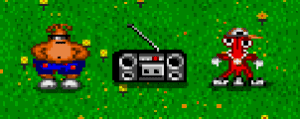 Turn Up The Jams
Turn Up The Jams
Look for the sound tab at the top of each Retro Review page to listen to The ‘Tude Dude’s favorite music from the game being analyzed (if available) to optionally help increase immersion while reading
 Extra Large Reviews
Extra Large Reviews
Reviews designated with an (XL) in the link include an in-depth column accompanying the typical critical assessment for additional context and perspective pertaining to the game being reviewed “The Indigo Gamer says”
“The Indigo Gamer says”
An additional quirky one-liner pertaining specifically to the game being reviewed from the perspective of The ‘Tude Dude’s goofy, pun-loving, multiplayer counterpart, The Indigo Gamer
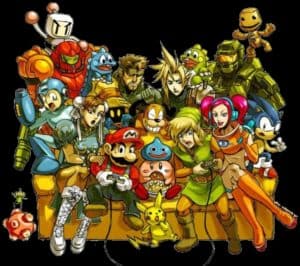 “Cast”
“Cast”
introductory section displaying the starring characters for the game being reviewed along with a brief description
This page will be dedicated solely to all of The ‘Tude Dude’s Retro Reviews. Any changes/additions in concept or design will be applied to the “Latest Additions” section above. Happy reading ‘tude fans!
Retro Reviews Key
|
Individual Category Scores
|
|
‘Tude Meter Rating
|
|
Final Verdict Scores
|
|
Genre Emojis
|
|
Single/Multiplayer Emojis
|
Retro Reviews Links

NES Reviews
Sega Genesis Reviews
SNES Reviews
Vs. Battle
Thanks for reading! Stay tuned for edits and additional content to this page.
Questions/Remarks/Suggestions?
E-Mail The ‘Tude Dude

radwriting@thetudedude.com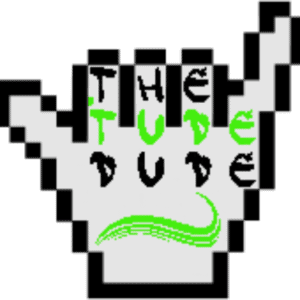
“Integrity With An EDGE!”
Published by



